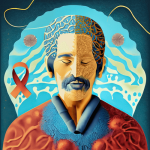It is crucial to acknowledge the significance of family history in the assessment of cancer risk. Understanding one’s family medical background can significantly influence an individual’s predisposition to cancer. This exploration aims to highlight the essential aspects of familial medical history and its direct correlation with the likelihood of developing cancer.
Understanding Family History and Cancer Risk
It is imperative to comprehend the correlation between family history and cancer risk, as numerous cancers exhibit a genetic or hereditary predisposition. The presence of a specific type of cancer in multiple family members may suggest an elevated risk for other relatives. Familiarity with your family’s medical background enables you and your healthcare provider to recognize potential genetic susceptibility factors and implement preventive strategies.
How Family History Can Affect Your Cancer Risk
An individual’s cancer risk can be significantly impacted by their family history, as it can unveil inherited conditions that predispose them to specific types of cancer.
Genetic counseling and risk assessment are pivotal in aiding individuals in comprehending their inherited conditions and evaluating their susceptibility to cancer development. By meticulously documenting detailed family health information, individuals provide essential data that genetic counselors can utilize to formulate a comprehensive risk profile. This profile can pinpoint potential genetic mutations or patterns that may elevate the risk of certain cancers, allowing proactive measures to be implemented for early detection and prevention. The understanding of one’s genetic predispositions through counseling and assessment enables them to make well-informed decisions regarding their health and overall well-being.
Creating a Personalized Cancer Screening Plan
The development of a personalized cancer screening plan entails the customization of screening guidelines and preventative measures to align with the unique aspects of an individual’s health profile. This process involves a thorough consideration of factors such as family history, risk factors, and medical history. The objective of this individualized approach is to improve early detection outcomes and optimize health management by ensuring that the individual undergoes the most suitable screening tests at the recommended intervals.
Factors to Consider
When formulating an individualized cancer screening plan, it is imperative to take into account a variety of factors including genetic composition, familial health records, and personal medical background.
The role of genetics in determining susceptibility to specific types of cancer cannot be overstated. Certain genetic mutations can significantly heighten the likelihood of cancer development, underscoring the importance of regular screenings for timely detection. Additionally, variables such as age, gender, and ethnicity are instrumental in shaping the screening regimen.
Insights gleaned from familial health records offer invaluable information regarding inherent genetic predispositions, enableing healthcare professionals to tailor screening strategies accordingly. A comprehensive understanding of personal medical history, encompassing past ailments and interventions, aids in evaluating current cancer susceptibility levels and designing preventative measures to safeguard long-term well-being.
Recommended Screening Tests
The selection of screening tests recommended varies depending on individual risk factors and screening guidelines. However, these screenings are essential for early detection and preventive healthcare.
Consistent screening procedures are crucial in the timely identification of cancer when it is most manageable. For instance, women are advised to undergo mammograms for breast cancer screening, while colonoscopies are utilized for detecting colorectal cancer. Moreover, Pap smears are fundamental for cervical cancer screening.
By adhering to these guidelines and undergoing screenings as per the recommended schedule, individuals can detect cancer in its early phases. This increases the likelihood of successful treatment and enhances overall health outcomes.
Implementing Your Plan
The successful execution of a personalized cancer screening plan requires a collaborative effort with your healthcare provider to ensure the timely administration of appropriate screenings, as well as ongoing medical consultation and health monitoring to assess results and make necessary plan adjustments. Effective implementation also encompasses follow-up care and prompt health interventions to address any abnormalities identified during screenings.
Working with Your Doctor
Collaborating with your healthcare provider is imperative for the development and maintenance of an effective cancer screening strategy. Their expertise in medical consultation and patient advocacy is crucial in ensuring that your screenings are conducted in a timely and thorough manner.
Beyond merely scheduling screenings, your healthcare provider offers valuable educational materials and support to help you comprehend the significance of early detection and regular monitoring. These resources facilitate a deeper understanding of your individual risk factors for different types of cancer and how lifestyle choices can influence your overall well-being.
By actively participating in discussions with your healthcare provider, you not only enhance your knowledge but also reinforce your dedication to adhering to the screening regimen. This commitment ultimately increases the likelihood of early detection and successful treatment.
Maintaining Consistency and Tracking Results
Maintaining consistency and diligently tracking results are essential components for the success of a cancer screening plan. These practices support early detection and improve health outcomes by ensuring that any deviations or irregularities are promptly addressed.
Adhering to the recommended screening schedule regularly and meticulously monitoring test results can significantly improve the ability to identify potential issues at their inception. By consistently tracking health data and conducting thorough analyses of the results, individuals can enable themselves to make well-informed decisions and customize their screening plan according to their specific health requirements. This proactive approach not only aids in the early identification of abnormalities but also allows for adjustments in screening frequency or methods to optimize the efficacy of preventive measures.
Additional Resources and Support
Supplementary resources and assistance are accessible to aid individuals in navigating their cancer screening plan. These resources encompass family support, public health campaigns, and wellness programs specifically tailored to foster emotional well-being and afford a wide array of health-related resources. The primary objective of these resources is to augment comprehension of cancer risks and screening procedures, providing a diverse range of tools and services to bolster individuals’ health journey.
Organizations and Tools for Cancer Screening
There exists a plethora of organizations and tools dedicated to cancer screening, providing valuable health resources, digital health tools, and supportive care to enable individuals in managing their health.
These organizations play a pivotal role in advocating for early detection and prevention of cancer. For example, the American Cancer Society offers a wide array of resources including cancer detection guidelines, screening programs, and supportive services. Similarly, CancerCare provides emotional support, counseling, and financial aid to those impacted by cancer. The National Comprehensive Cancer Network (NCCN) is instrumental in developing evidence-based guidelines for cancer care and disseminating information on screening procedures.
The advancements in health technology have given rise to the creation of digital tools such as screening applications, telemedicine services, and remote monitoring solutions. These innovations serve to enhance patient engagement and facilitate improved access to healthcare services.
Frequently Asked Questions
What is the importance of harnessing family history for creating a personalized cancer screening plan?
Harnessing family history allows individuals to identify their risk for various types of cancer based on their genetic predisposition and family medical history. This information can help create a personalized cancer screening plan that is tailored to the individual’s needs.
What types of cancer can be detected through harnessing family history?
Certain types of cancer, such as breast, ovarian, and colon cancer, have a hereditary component. By analyzing family history, individuals can identify their risk for these types of cancer and take proactive steps towards early detection and prevention.
Can harnessing family history help prevent cancer?
While family history cannot prevent cancer, it can help individuals be more aware of their risk factors and take proactive measures to prevent or detect cancer at an early stage. This can include regular cancer screenings, lifestyle changes, and genetic testing.
How often should I update my personalized cancer screening plan?
It is recommended to update your personalized cancer screening plan every 3-5 years, or sooner if there are any significant changes in your family medical history. This will ensure that your screening plan is up-to-date and tailored to your current risk factors.
Is genetic testing necessary for creating a personalized cancer screening plan?
Genetic testing is not necessary for everyone, but it can be helpful in identifying potential genetic mutations that increase the risk of certain types of cancer. Your doctor can discuss the benefits and limitations of genetic testing and whether it is necessary for your personalized cancer screening plan.
What resources are available for harnessing family history and creating a personalized cancer screening plan?
There are many resources available, such as genetic counselors, cancer risk assessment tools, and support groups, that can help individuals harness their family history and create a personalized cancer screening plan. It is important to consult with a healthcare professional for personalized recommendations.




